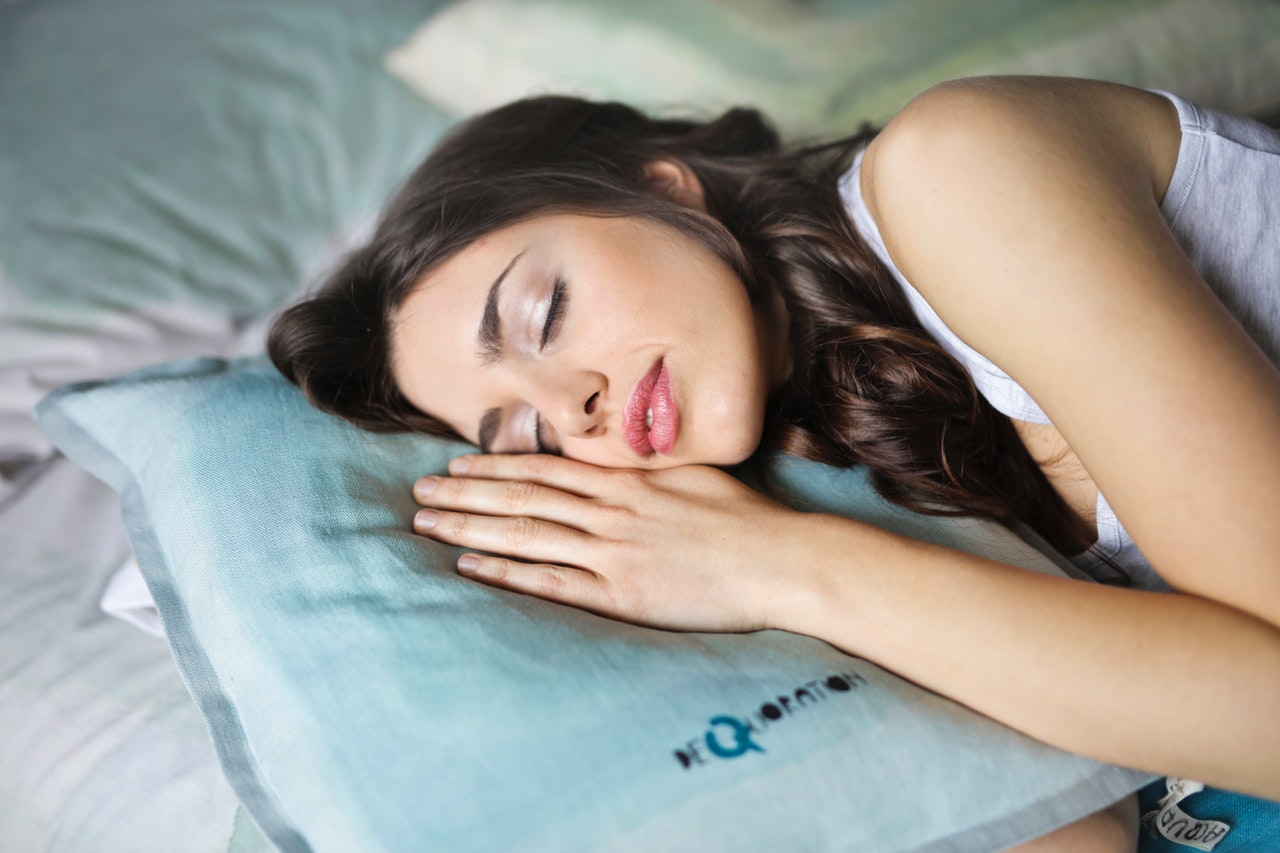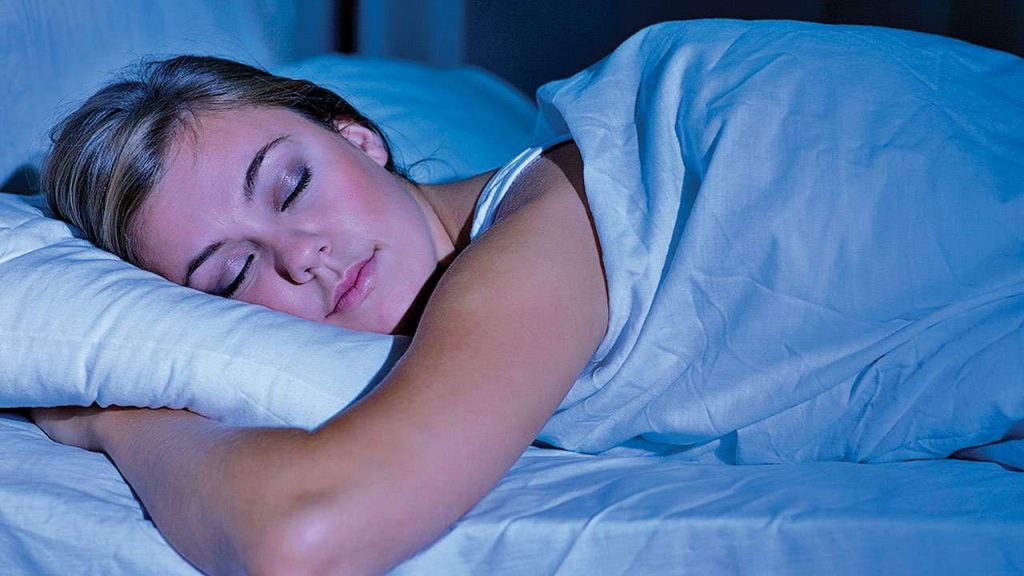A good night’s sleep is just as important as regular exercise and a healthy diet.
Research shows that poor sleep has immediate negative consequences on your hormones, exercise performance, and brain function.
In addition, it can cause weight gain and increase disease risk in both adults and kids.
By comparison, fantastic sleep can help you eat less, exercise, and be healthier.
Over the past few decades, both sleep quality and volume have declined. In fact, many individuals frequently get poor sleep.
If you would like to optimize your health or eliminate weight, then getting a good night’s sleep is one of the most important things you can do.

Listed below are 17 evidence-based tips to sleep at night.
1. Boost bright light exposure throughout daily
Your system has a natural time-keeping clock known as your circadian rhythm.
It affects your mind, body, and hormones, helping you stay awake and telling your own body when it is time to sleep.
Natural sunlight or bright light during the day helps maintain your circadian rhythm wholesomely. This enhances daytime energy, as well as night sleep quality and length.
In people with insomnia, daytime bright light exposure improved sleep quality and length. Additionally, it decreased the time it took to fall asleep by 83%.
A similar study in older adults found that two hours of bright light exposure throughout the daytime increased the quantity of sleep by 2 hours and sleep efficiency by 80%.
While most research involves people with severe sleep issues, daily light exposure will probably help you even if you experience average sleep.
Try getting daily sunlight exposure or if this isn’t sensible — invest within a synthetic bright light apparatus or bulbs.
SUMMARY
Daily sun or artificial bright light may enhance sleep quality and duration, particularly if you have severe sleep issues or sleeplessness.
2. Reduce blue light exposure in the evening
Exposure to light during the day is advantageous, but night light exposure has the opposite effect.
Again, this is a result of its impact on your circadian rhythm, tricking your mind into thinking it is still daytime. This reduces hormones such as melatonin, which helps you relax and get heavy sleep.
Blue lighting — which electronic devices like computers and smartphones emit in massive amounts — would be that the worst in this regard.
There are several popular techniques you may use to reduce nighttime blue light vulnerability. These include:
- Wear eyeglasses that block blue light.
- Download an app such as f.lux to block blue light on your notebook or computer.
- Install a program that blocks blue light on your smartphone. These are available for both iPhones and Android models.
- Quit watching TV and turn off any bright lights two hours before going to bed.
SUMMARY
Blue light tricks your body into thinking it’s daytime. There are numerous ways that you may reduce blue light exposure in the evening.
3. Do not consume caffeine late in the day
Caffeine has numerous benefits and is absorbed by 90% of the U.S. population.
A single dose may improve focus, energy, and sports performance.
However, when consumed in the day, caffeine stimulates your nervous system and might stop your body from naturally relaxing at nighttime.
In one study, consuming caffeine around 6 hours before bed significantly worsened sleep quality.
Caffeine can stay elevated in your bloodstream for 6–8 hours. Therefore, drinking considerable quantities of coffee after 3–4 pm is not wise, particularly if you’re allergic to caffeine or have difficulty sleeping.
Should you crave a cup of coffee in the late afternoon or evening, stick with decaffeinated coffee.
SUMMARY
Caffeine can considerably worsen sleep quality, particularly in the event that you drink large quantities from the late afternoon or evening.
4. Reduce intermittent or long daytime naps
While brief power naps are beneficial, irregular or long snacking during the day can negatively influence your sleep.
Sleeping at the daytime may confuse your inner clock, which means that you may struggle to sleep soundly at nighttime.
In fact, in one study, participants ended up being sleepier during the afternoon after taking daytime naps.
Another study noted that while napping for 30 minutes or less may enhance daytime brain function, longer naps can damage health and sleep quality.
However, some studies demonstrate that those that are used to carrying regular daytime naps do not experience poor sleep quality or disrupted sleep during the night.
If you take regular daytime naps and sleep well, you should not worry. The impacts of napping rely upon the person.
SUMMARY
Long daytime naps may impair sleep quality. If you have problems sleeping through the night, quit stirring or enhance your naps.
5. Try to sleep and wake up at consistent times
Your own body’s circadian rhythm works on a set loop, aligning itself with sunrise and sunset.
Being consistent with your sleep and waking times can aid long-term sleep quality.
One study noted that participants who had irregular sleeping patterns also proceeded to bed late on the weekends reported bad sleep.
Other studies have highlighted that irregular sleep patterns can change your circadian rhythm and amounts of cortisol, which indicate your brain to sleep.
If you fight with sleep, try to get in the habit of waking up and going to bed at similar times. After a few weeks, you may not even need an alarm.
SUMMARY
Attempt to get into a regular sleep/wake cycle — particularly on weekends. If you can, try to wake up naturally in a similar time every day.
6. Take a melatonin supplement
Melatonin is an integral sleep hormone that tells your brain when it’s time to unwind and head to bed.
Melatonin supplements are an extremely popular sleep aid.
Frequently used in the treatment of insomnia, melatonin may be one of the simplest approaches to fall asleep quicker.
In 1 study, taking 2 mg of melatonin before bed improved sleep quality and vitality the next day and helped people fall asleep faster.
In another analysis, half of this group fell asleep faster and had a 15% increase in sleep quality.
Furthermore, no withdrawal effects were reported in either of the above studies.
Melatonin can also be useful when adapting and traveling to a new time zone since it assists the body’s circadian rhythm return to regular.
In some countries, you need a prescription for melatonin. In others, melatonin is widely available in stores or online. Take around 1–5 of 30–60 minutes before bed.
Begin with a very low dose to evaluate your tolerance and increase it slowly as needed. Since melatonin may change brain chemistry, it is recommended that you consult a health care provider prior to use.
You should also talk to them in case you’re considering using melatonin as a sleep aid for your child, as long-term utilization of this supplement in children has not been well researched.
Shop for melatonin supplements online.
SUMMARY
A melatonin supplement is an easy way to enhance sleep quality and fall asleep quicker. Take 1–5 of around 30–60 minutes prior to heading to bed.
7. Consider these other supplements
Several supplements may cause relaxation and help you sleep, including:
- Ginkgo biloba: A natural herb with many added benefits, it can aid sleep, comfort, and stress reduction, however, the evidence is limited. Take 250 mg 30–60 minutes prior to bed.
- Glycine: A few studies show that taking 3 g of this amino acid glycine can enhance sleep quality.
- Valerian root: Several studies suggest that valerian can help you drop some weight and improve sleep quality. Take 500 mg before bed.
- Magnesium: accountable for over 600 reactions within the entire body, magnesium may improve comfort and improve sleep quality.
- L-theanine: An amino acid, L-theanine can improve sleep and relaxation. Take 100–200 mg before bed.
- Lavender: A powerful herb with many health benefits, lavender may induce a calming and sedentary effect to improve sleep. Take 80–160 mg containing 25–46 percent linalool.
Make sure to only try these nutritional supplements one at a time. While they are not a magic bullet for sleep difficulties, they may be helpful when combined with other all-natural sleeping strategies.
SUMMARY
Several supplements, such as lavender and magnesium, can help with relaxation and sleep quality when coupled with other approaches.
8. Don’t drink alcohol
With a few drinks at night can negatively influence your hormones and sleep.
Alcohol is known to cause or increase the signs of sleep apnea, snoring, and disrupted sleep patterns.
Additionally, it shifts night melatonin production, which plays an integral role in your body’s circadian rhythm.
Another study found that alcohol intake at night diminished the natural nighttime elevations at human growth hormone (HGH), which plays a role in your circadian rhythm and contains many other important functions.
SUMMARY
Avoid alcohol before bed, as it can decrease nighttime melatonin production and result in disrupted sleep patterns.
9. Optimize your bedroom environment
A lot of folks believe that the bedroom surroundings and its own setup are crucial factors in getting a fantastic night’s sleep.
These factors include temperature, noise, external lighting, and furniture structure.
Various studies point out that outside sound, often from traffic, may cause poor sleep and long-term health issues.
In 1 study on the bedroom environment of girls, around 50% of participants noticed improved sleep quality when sound and light diminished.
To maximize your bedroom surroundings, try to minimize outside noise, light, and artificial lights from devices like clocks. Make sure your bedroom is a quiet, relaxing, clean, and enjoyable location.
SUMMARY
Boost your bedroom environment by removing external light and sound to get much better sleep.
10. Set your bedroom temperature
Bedroom and body temperature can also significantly affect sleep quality.
Because you might have experienced during the summer months or at hot spots, it can be quite difficult to get a good night’s sleep when it’s too warm.
One study found that bedroom temperature influenced sleep quality over the external sound.
Other studies show that increased body and bedroom temperature may decrease sleep quality and increase wakefulness.
About 70°F (20°C) appears to be a comfortable temperature for most individuals, though it is dependent upon your preferences and customs.
SUMMARY
Test different temperatures to learn which is most comfortable for you. Around 70°F (20°C) is best for many people.
11. Don’t eat late in the evening
Eating late at night could negatively impact both sleep quality and the natural release of HGH and melatonin.
Nevertheless, the quality and type of your late-night snack can perform a role too.
In one study, a high carb meal eaten 4 hours before bed helped people fall asleep faster.
Interestingly, one study discovered a low-carb diet also improved sleep, indicating that carbs aren’t always necessary, particularly if you’re utilized to a low carb diet.
SUMMARY
Consuming a huge meal before bed can result in poor sleep and hormone disruption. However, certain foods and snacks a couple of hours before bed may help.
12. Relax and clear your mind in the evening
Lots of people have a pre-sleep pattern which helps them unwind.
Comfort techniques before bed have been shown to improve sleep quality and are another frequent technique used to treat insomnia.
In one study, a relaxing massage improved sleep quality in people who were ill.
Plans include listening to relaxing music, reading a novel, taking a spa, meditating, deep breathing, and visualization.
Test out different procedures and discover what works best for you.
SUMMARY
Relaxation techniques before bed, including hot baths and meditation, may help you fall asleep.
13. Take a relaxing bath or shower
A relaxing shower or bath is another popular way to maneuver better.
Studies indicate that they can help enhance overall sleep quality and assist people — especially elderly adults — fall asleep faster.
In 1 study, taking a hot bath 90 minutes before bed improved sleep quality and assisted folks to get more profound sleep.
Instead, if you do not need to take a full bath at night, just bathing your feet in warm water can help you unwind and enhance sleep.
SUMMARY
A hot bath, shower, or foot tub before bed can help you relax and improve your sleep quality.
14. Rule out a sleeping disorder
An inherent health condition may be the cause of your sleep problems.
One common issue is sleep apnea, which causes inconsistent and interrupted breathing. People with this disorder stop breathing while sleeping.
This condition may be more common than you think. 1 review claimed that 24 percent of men and 9% of girls have sleep apnea.
Other common medically diagnosed issues include sleep movement disorders and circadian rhythm sleep/wake disorders, which are common in shift employees.
If you’ve always fought with sleep, it could be wise to consult your healthcare provider.
SUMMARY
There are many common conditions that can cause poor sleep, including sleep apnea. See a healthcare provider if poor sleep is a constant problem in your lifetime.
15. Get a comfy bed, mattress, and pillow
Some people wonder why they always sleep better at a hotel.
Aside from the relaxing environment, mattress quality may also have an effect on sleep.
One study looked at the benefits of a brand new mattress for 28 days, demonstrating that it decreased back pain by 57 percent, shoulder pain by 60%, and back stiffness by 59 percent. It also improved sleep quality by 60%.
Other studies point out that fresh bedding can improve sleep. Additionally, bad quality bedding can result in increased lower back pain.
The very best bedding and mattress are extremely subjective. If you are updating your bedding, base your choice on personal preference.
It’s advisable that you upgrade your bedding at least every 5–8 decades.
If you haven’t replaced your mattress or bedding for several decades, this can be a rather fast — although possibly expensive — fix.
Click the following links to search for and compare mattresses and pillows.
SUMMARY
Your bed, mattress pillow may considerably affect sleep quality and joint or back pain. Attempt to buy a premium excellent bedding — including a mattress — each 5–8 years.
16. Exercise frequently — but not until bed
Exercise is just one of the very best science-backed ways to improve your sleep and health.
It may enhance all aspects of sleep and has been used to reduce symptoms of sleeplessness.
One study in elderly adults decided that exercise nearly halved the amount of time it took to fall asleep and provided 41 more minutes of sleep during the night.
In individuals with severe insomnia, exercise offered more advantages than most drugs. Exercise decreased time to fall asleep by 55 percent, total night wakefulness by 30%, and anxiety by 15% while increasing total sleep period by 18%.
Although daily exercise is critical for a good night’s sleep, doing it too late in the day can cause sleep issues.
This is a result of the stimulatory effect of exercise, which increases alertness and hormones such as epinephrine and adrenaline.
However, some studies show no negative effects, therefore it clearly depends upon the person.
SUMMARY
Regular exercise during daylight hours is among the best ways to guarantee a fantastic night’s sleep.
17. Do not drink any liquids before bed
Nocturia is the medical term for excessive urination during the evening. It affects sleep quality and daytime energy.
Drinking large quantities of liquids before bed can result in similar symptoms, even though some folks are more sensitive than others.
Though hydration is vital to health, it is wise to lower your fluid consumption in the late evening.
Attempt to not drink any fluids –2 hours before going to bed.
It’s also wise to use the bathroom right before going to bed, since this may reduce your likelihood of waking in the evening.
SUMMARY
Reduce fluid consumption in the late night and attempt to use the bathroom before bed.
The Most Important Thing
Sleep plays a key part in your health.
1 large review linked insufficient sleep to an increased risk of obesity by 89 percent in children and 55 percent in adults.
Other studies conclude that getting less than 7–8 hours per night increases your risk of developing cardiovascular disease and type 2 diabetes.
If you are interested in optimum health and well-being, it’s recommended that you make sleep a priority and incorporate some of the advice above.











